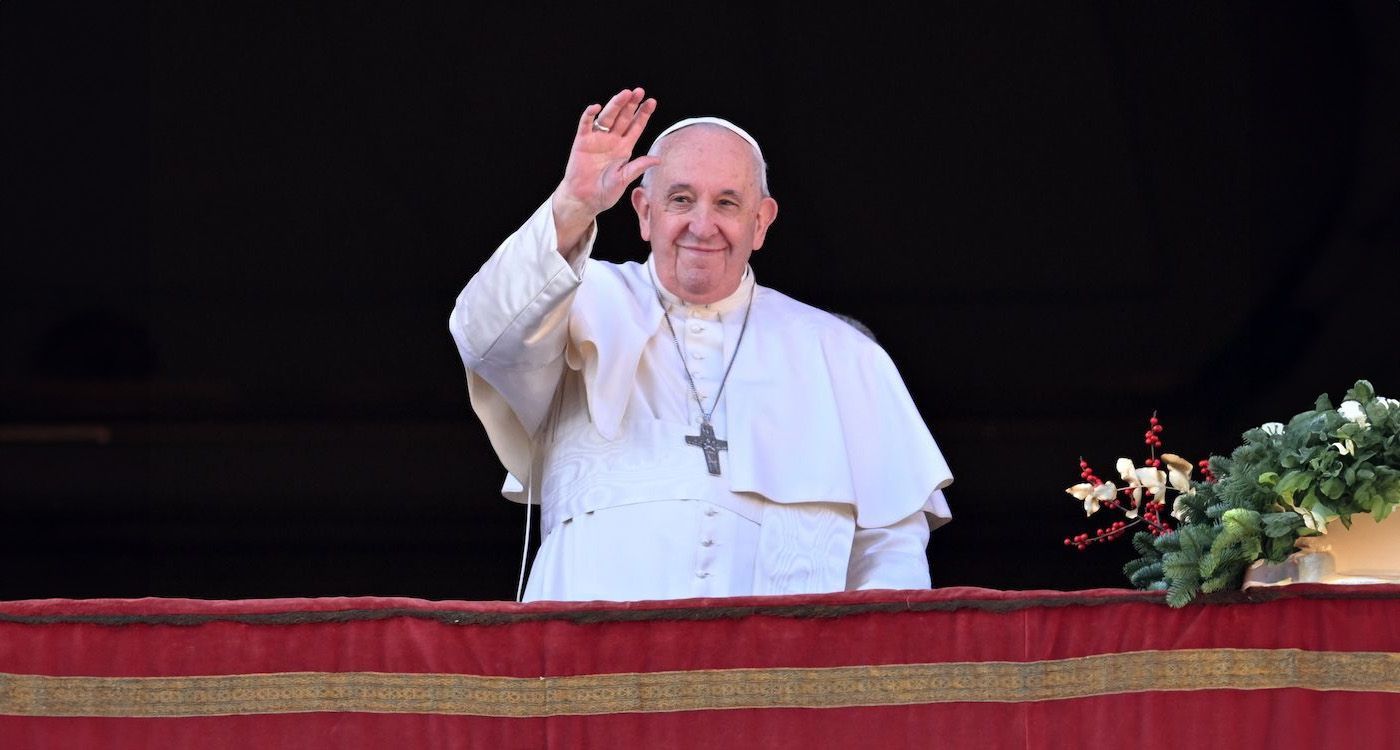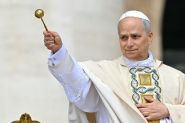- Home
- Middle East
- Pope Francis and the Grace of God

Pope Francis
Despite appearances that may lead some to think the world is merely an endless repetition, History has meaning: the world is moving toward something. A deadly struggle between truth and falsehood marks this History. One need look no further than the fabrications currently infesting the internet—fabrications involving dates, predictions, and occult conspiracies.
One of the most recent posts about Pope Francis was sent to me by a friend. In short, it claims he did not die of a stroke but was assassinated by an injection of a lethal substance. They seek to strip Francis of the grace of a natural death on a solemn day like Easter Monday, the day after the greatest Christian feast, and perhaps the greatest feast of all time: the celebration of the victory over death.
This victory was not, for Pope Benedict XVI, merely an extraordinary event, but a true "mutation"—the inauguration of a new age for the world, one in which God grants Himself even greater freedom than when He walked among us: the freedom to reveal to humanity a power of which they had only a faint notion—the power over death, the power of Christ’s love, capable of changing history and bringing down fortresses.
It is precisely this love that Pope Francis sought to reveal anew to humanity, shaking off the centuries-old burdens that had reduced faith to a moral code and immutable rites. For the thirst for God runs deeper than moral order—of which God is the source. It is from this acute awareness of the thirst for God that the Pope drew his profound compassion for all people, however far their lives may have strayed from the norms of holiness. It is from this depth that Francis’ famous "Who am I to judge?" arose, directed toward those who condemn men and women whose nature—or other undefined and sometimes obscure reasons—draws them toward someone of the same sex, provided they seek the good with all their soul and act rightly upon what they find within themselves.
In doing so, Pope Francis truly ushered the world into a new age: the age of Mercy, whose mysteries were revealed by Saint Faustina Kowalska, the Polish nun canonized by Saint John Paul II.
Saint Faustina’s message, conveyed by Jesus Himself, is that no matter the moral state of humanity, it would be an insult to believe His merciful heart is powerless to redeem it—and to set it free.
Instead of embracing this freedom, notes Benedict XVI, the West has chosen to "liberate" itself from religion—and to hold God accountable.
Francis’ reference to wheat and weeds points back to the parable of the wheat and the tares. Jesus advises against rushing to uproot the tares, "lest while gathering the tares you uproot the wheat with them." This is the wise attitude of one who understands that history often advances under a mask.
Thus, we return to our main point. In his masterwork The City of God, Saint Augustine writes: "Two loves have made two cities: the love of self unto contempt of God, the earthly city; and the love of God unto contempt of self, the heavenly city." These two cities symbolize two ideological systems, each with its own values. The dividing lines run through each of us—and through the societies we live in.
As for the victorious outcome of the battle between these two systems, we know neither the day nor the hour. But we await it in faith, careful not to jump to conclusions too hastily.
Pope Francis was fully aware of this mortal struggle, which is why he consecrated his pontificate to Our Lady of Fatima as early as 2013. Throughout his pontificate, before and after every major journey, he would go to Saint Mary Major to seek the Virgin’s protection and to offer thanks.
In her 1917 revelations, Our Lady predicted the end of the World War and warned of an even more barbaric war if humanity did not change its ways. To prevent this, she requested the consecration of Russia to her Immaculate Heart and affirmed that, no matter how history unfolded, "a time of peace would be granted to the world."
We know that her warnings were not heeded, and events did not unfold as she wished.
Nevertheless, according to her, this precious gift—peace—would only be granted "for a time," and would eventually be compromised.
Has humanity learned nothing—and will it learn nothing—from its own history? Sadly, no. Until the final battle.
Facing history, says historian Henri Marrou, a Christian can only adopt a "tragic realism." But let us not get ahead of ourselves. Peace first.
The conclave will have to take this into account.
Read more




Comments